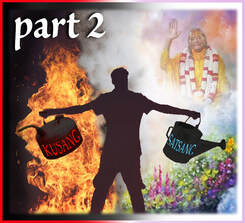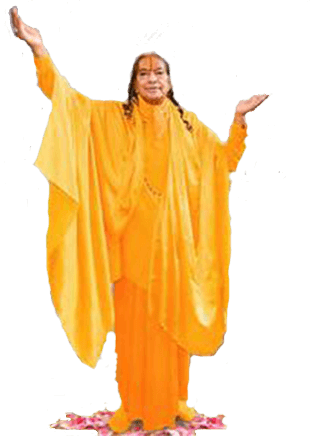Forms of Kusang

This article is a continuation of Beware of Kusang. To understand topic of Kusang (कुसङ्ग) in its entirety please read both articles.
Recap: One needs to perform Sadhana bhakti to earn spiritual merit and always be on guard to avoid Kusang. Both of these have to be done together to continue and steadily progress on the path of devotion.
This kusang manifests itself in a variety of ways, some of which might be counter-intutive. So take heed of the forms of Kusang. Commit them to memory. This will help you recognize them and thus give you a fighting chance to avoid them.
Recap: One needs to perform Sadhana bhakti to earn spiritual merit and always be on guard to avoid Kusang. Both of these have to be done together to continue and steadily progress on the path of devotion.
This kusang manifests itself in a variety of ways, some of which might be counter-intutive. So take heed of the forms of Kusang. Commit them to memory. This will help you recognize them and thus give you a fighting chance to avoid them.
|
1. To read, hear, see and think about material topics is a kusang since thinking and contemplating on material matters is very dangerous.
Constant thinking of any material matter captures the mind with similar thoughts, resulting in fondness and propensity to keep the mind engaged in similar thoughts. You may recollect, how Ajamil became the greatest sinner (see “Is Reciting Names of God Sufficient?”). The Gita says: ध्यायतो विषयान् पुंसः सङ्गस्तेषूपजायते।
dhyāyato viṣayān puṃsaḥ saṅgasteṣūpajāyate। |
“Constant reflection on a subject leads to attachment with that subject”.
So, to increase one’s devotion, one must avoid listening to and reading about material subjects just as to douse a fire, one must stop adding fuel to it. If you stop adding the fuel of Kusang to the internal fire of the three modes of maya burning inside our mind, the fire will slowly but surely subside. Furthermore, if you spray ice cold water of the names of the Divine Lord through the association of a saint (Satsang) the fire will gradually but surely die down.
|
2. Self-Study of the scriptures is also a form of kusang. It is a difficult to comprehend why reading books written by saints can constitute to be Kusang.
Let us logically try to understand this point. Every authentic scripture has been composed by God-realized saints who have personally seen and experienced God. These scriptures can also be called God created scriptures (भगवत्प्रणीत ग्रंथ). Each and every word of these scriptures has such a deep meaning that only a God-realized saint can comprehend it’s real meaning. To an imperfect, material mind, reading these words can only increase pride and might also give rise to doubts, confusions and mis-perceptions. Tulsidas Ji says the same in this verse: मुनि बहु मत बहु पंथ पुरानन, जहाँ तहाँ झगरो सो ।
muni bahu mata bahu paṃtha purānana, jahām̐ tahām̐ jhagaro so । |
“The saints and Puranas (scriptures), have many seemingly contradictory views”
श्रुति पुरान बहु कहेउ उपाई । छूट न अधिक अधिक अरुझाई ।
śruti purāna bahu kaheu upāī । chūṭa na adhika adhika arujhāī ।
śruti purāna bahu kaheu upāī । chūṭa na adhika adhika arujhāī ।
“Shrutis and Puranas recommend different ways to remove our ignorance. However, since the methods may often appear contradictory, reading about all the different paths, may further entangle our already confused mind, instead of providing clarity”.
That’s why our scriptures ask us to understand the real meaning of the scriptures from an authentic saint only (see Saint or Imposter). The Gita says:
That’s why our scriptures ask us to understand the real meaning of the scriptures from an authentic saint only (see Saint or Imposter). The Gita says:
|
तद्विद्धि प्रणिपातेन परिप्रश्नेन सेवया ।
उपदेक्ष्यन्ति ते ज्ञानं ज्ञानिनस्तत्वदर्शिनः ॥ गीता ४.३४ |
tadviddhi praṇipātena paripraśnena sevayā ।
upadekṣyanti te jñānaṃ jñāninastatvadarśinaḥ ॥ gītā 4.34 |
 Poison Control Expert is not immune to the poison. Upon ingestion, poison will affect him as well
Poison Control Expert is not immune to the poison. Upon ingestion, poison will affect him as well
Shri Krishna said,"Submit to a God-realized saint and inquisitively ask questions. The words of the Guru will clarify your spiritual doubts and give you true wisdom."
All too often, we underestimate the impact of Kusang and wish to show off our immunity to negative influences by continuing to associate with ungodly people and objects. It is sheer lunacy. This is like proclaiming that I am an expert on poison control, so consuming poison will have no impact on me. It is to be understood here, that poison does not discriminate between a common man and a poison control expert. It will kill, whoever consumes the poison.
Before God realization, we have to be extremely cautious about who and what we associate with.
As Tulsidas Ji says - after God-realization:
All too often, we underestimate the impact of Kusang and wish to show off our immunity to negative influences by continuing to associate with ungodly people and objects. It is sheer lunacy. This is like proclaiming that I am an expert on poison control, so consuming poison will have no impact on me. It is to be understood here, that poison does not discriminate between a common man and a poison control expert. It will kill, whoever consumes the poison.
Before God realization, we have to be extremely cautious about who and what we associate with.
As Tulsidas Ji says - after God-realization:
|
अब मैं तोहिं जान्यो संसार ।
बाँधि न सकइ मोहिं हरि के बल, प्रकट कपट आगार । सहित सहाय तहाँ बसु शठ जेहि, हृदय न नंदकुमार । |
aba maiṃ tohiṃ jānyo saṃsāra ।
bām̐dhi na sakai mohiṃ hari ke bala, prakaṭa kapaṭa āgāra । sahita sahāya tahām̐ basu śaṭha jehi, hṛdaya na naṃdakumāra । |
“O world! I have now understood your true nature. You cannot over-power me anymore, for Shri Krishna is my strength. O Maya! depart from here and take with you the generals of your army, into the hearts of those, where Shyam Sundar, the son of Nanda does not reside”.
This verse proves that no-one can challenge Maya, before God-realization. This challenge can only be thrown by God realized saints.
This verse proves that no-one can challenge Maya, before God-realization. This challenge can only be thrown by God realized saints.
3. Finding faults in others: this is a serious Kusang. It causes two harms:
- Seeing faults in others, gives rise to pride. Pride is the greatest barrier in Bhakti (see "Humility – The Key to Devotion" article in 2012 Holi - Divya Sandesh).
- Reflecting on other’s faults, contaminates the mind with the same faults. Besides, when everyone in the world, including us, are imperfect, then why expend time and energy in looking for faults in others? How smart is it for an ignorant person to call someone else ignorant and foolish? It is, however, altogether a different matter, for a scholar to call an ignorant person, ignorant.
|
4. Arguing about the intimate philosophy of devotion with an undeserving person is an offense and a Kusang. If the subject of divine philosophy is beyond the recipient’s interest or understanding, he is likely to misinterpret it and potentially poison the mind of others as well.
|
5. Reading or listening to the teachings of saints other than your Guru is also a form of Kusang even though you may claim to be listening to the philosophy propagated by a God realized saint.
This is because the words of all God realized saints are immensely powerful and leave a deep impact on our minds. If a listener listens to the teachings of multiple God realized saints, who propagate different paths of realizing God, the listener will get totally confused and unable to determine the path that is good for him. Further he would run the risk of appreciating one saint and philosophy, while criticizing the other, thereby committing a great offense (see the article "The Gravest Sin" in 2019 New Year Edition of Divya Sandesh) against a saint.
This is because the words of all God realized saints are immensely powerful and leave a deep impact on our minds. If a listener listens to the teachings of multiple God realized saints, who propagate different paths of realizing God, the listener will get totally confused and unable to determine the path that is good for him. Further he would run the risk of appreciating one saint and philosophy, while criticizing the other, thereby committing a great offense (see the article "The Gravest Sin" in 2019 New Year Edition of Divya Sandesh) against a saint.
भावोऽप्यभावमायाति कृष्णप्रेष्ठापराधतः । भ.र.सिं
bhāvo'pyabhāvamāyāti kṛṣṇapreṣṭhāparādhataḥ । bha.ra.siṃ
bhāvo'pyabhāvamāyāti kṛṣṇapreṣṭhāparādhataḥ । bha.ra.siṃ
“An aspirant will immediately face downfall if he commits an offense against a saint, regardless of how far he or she has reached on the spiritual path”.
So, for progressing on the path of devotion, one must avoid Kusang. Indulging in Kusang, while continuing to perform devotion is like spending more than your earnings. In this situation, you will forever remain bankrupt. It is as important to follow dietary restrictions as it is to taking medicines for a speedy and complete recovery. Performing devotion or Bhakti is like taking medicines and avoiding Kusang is like following the prescribed dietary restrictions.
Hence the key point is to gain benefit from the association of a saint (सत्सङ्ग), practice regular devotion and avoid Kusang to save and enhance your spiritual earnings.
So, for progressing on the path of devotion, one must avoid Kusang. Indulging in Kusang, while continuing to perform devotion is like spending more than your earnings. In this situation, you will forever remain bankrupt. It is as important to follow dietary restrictions as it is to taking medicines for a speedy and complete recovery. Performing devotion or Bhakti is like taking medicines and avoiding Kusang is like following the prescribed dietary restrictions.
Hence the key point is to gain benefit from the association of a saint (सत्सङ्ग), practice regular devotion and avoid Kusang to save and enhance your spiritual earnings.
|
एक बात सबसे अधिक विचारणीय है । वह है, कुसंग से बचना । अन्यथा, जैसे एक सूरदास रस्सी बट रहा था; ५० फुट रस्सी बटने के पश्चात जब पीछे की और देखा तो १ ही फुट मिली, सब रस्सी भैंस खा गई, वह स्थिती होगी ।
- जगद्गुरु कृपालु जी महाराज
Alongside our devotional practice we also need to understand about and avoid the impediments that block out spiritual progress. These are collectively referred to "kusang". Once a blind man was making rope. After having made 50 feet of it, while rewinding the rope found that only one foot was left. Unknown to him, there was a buffalo that had been eating the rope as he was twining it. Likewise, kusang can make us lose more than what we have gained via devotional practice. Hence we must understand kusang and cautiously avoid it.
- Jagadguru kripalu Ji Maharaj
|






